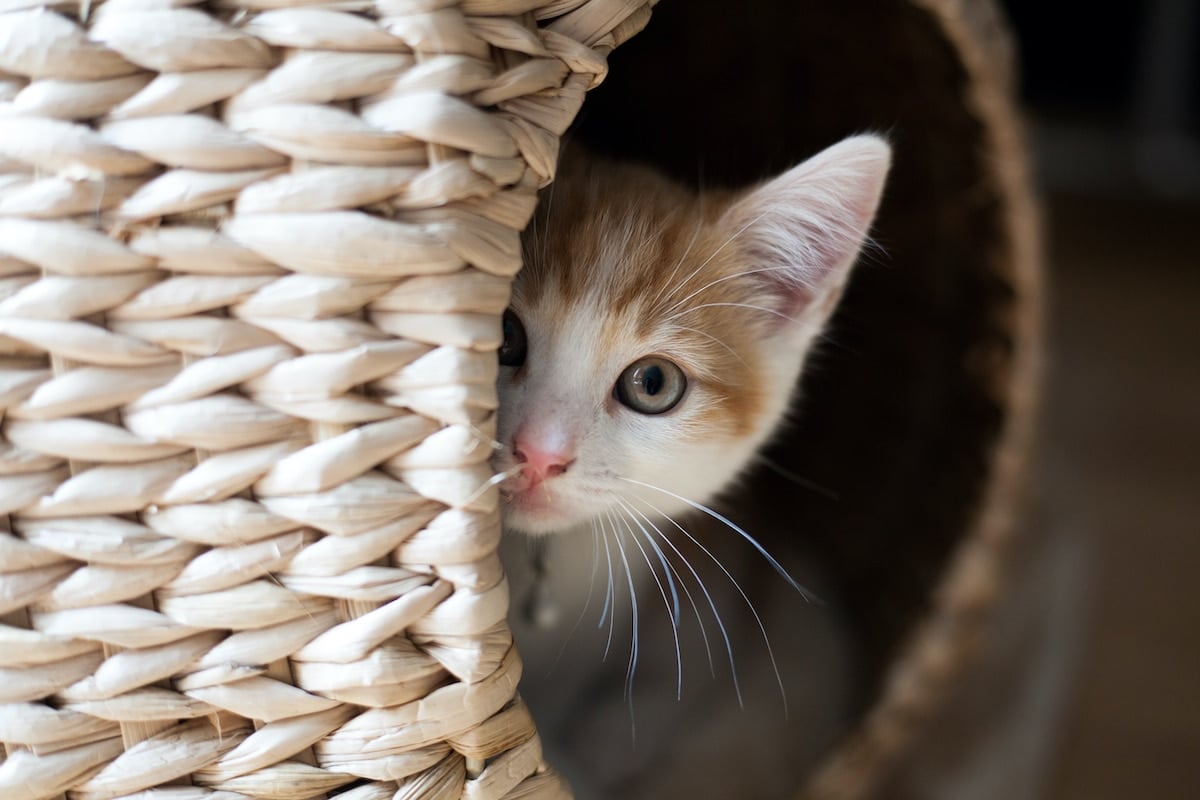Are you in a situation where you need to hide your cat from your landlord? We understand the deep bond between pet owners and their beloved feline friends, making the thought of separation unbearable. In this article, we will provide you with some clever strategies to effectively keep your cat hidden from your landlord, allowing you to continue enjoying their company in your rented space.
1. Avoid Seeking Permission
The cardinal rule when it comes to concealing your cat from your landlord is to avoid seeking permission. Approaching your landlord to ask for approval will only draw attention to the presence of your cat and could have legal consequences. It’s best to refrain from mentioning your cat to your landlord and limit your interactions with them. Understanding your landlord’s visitation schedule is crucial, as it can help you plan your actions accordingly.
2. Remove All Traces of Your Cat
To ensure no evidence is left behind, remove all traces of your cat from your apartment. Store toys and other belongings in a trusted friend’s or family member’s home, or in the trunk of your car parked outside. Leaving toys or a visible litter box can give away your secret, so it’s important to keep them out of sight.
3. Thoroughly Clean Your Apartment
Pets, including cats, can leave distinctive odors that are easily detectable. Before any inspections, thoroughly clean your apartment to eliminate any lingering pet smells. Vacuum your entire home, including upholstery and carpets. Use scented candles or room sprays to mask any odors. Consider using a portable air purifier to effectively eliminate pet smells.
4. Conceal Your Cat’s Personality
If your landlord suspects that you are not a pet owner, they may be less likely to associate you with having a cat. Whenever you have conversations with your landlord, express your aversion to cats, if it naturally fits into the conversation. This can help maintain the image of a non-pet owner and keep you off the radar.
5. Enlist Friends as Pet Sitters
If you’re worried about potential issues during landlord inspections, consider enlisting a friend to pet sit for a few days. Offering a small incentive, such as treating them to dinner or gifting them a bottle of wine, can often suffice as a way to express your gratitude for their assistance.
6. Disguise Your Cat
Concealing your cat may seem challenging, especially if they are a larger animal like a cat or dog. Avoid hiding them in dark, cramped spaces, as they may produce sounds that could give you away. Instead, use creative methods such as draping a blanket over your pet. If you own a cat carrier, make sure to conceal it as well.
7. Maintain Discretion About Cat Numbers
If your building allows pets, it’s important to maintain discretion about the number of cats in your apartment. Disclosing multiple cats may result in higher monthly payments. While neighbors and maintenance staff may not know the number of cats you’ve declared, it’s crucial to ensure that your landlord only witnesses one cat at a time during their inspections.
How to Conceal a Cat During an Apartment Inspection
During surprise inspections or short-notice visits, you may need to take additional precautions to hide your cat. Here’s what you can do:
- Preselect a Suitable Hiding Spot: Plan ahead and identify a suitable hiding place for your cat. You can choose to relocate your pet to a friend’s house, enlist a pet sitter, or conceal your cat within your home.
- Gather Essential Items: If you decide to relocate your cat or hire a pet sitter, make sure to bring along essential items such as the litter box, cat food, and toys.
- Tidy Up After Playtime: Keep your cat’s play area neat and tidy. Store all toys in one location to prevent them from scattering throughout the apartment.
- Thoroughly Clean Your Home: Vacuum your home to remove any pet fur from surfaces. Pets can leave distinctive odors, and you want to ensure your landlord doesn’t detect any.
- Use Air Fresheners: Employ air fresheners to mask any residual pet odors. Hide pet grooming items that could give away your secret. Ensure your cat cannot escape from its hiding spot while the landlord is present.
- Create Distractions: If your landlord arrives unexpectedly, buy yourself some time by making an excuse or pretending to receive an emergency call.
- Be Ready with Excuses: Always prepare a few plausible excuses in case of unforeseen landlord visits. Having these at your disposal can help you maintain your secret successfully.
Frequently Asked Questions
What Happens If I Don’t Inform My Landlord About My Cat? Failing to inform your landlord about the presence of a cat in your apartment can lead to fines or other penalties. If your lease agreement explicitly prohibits pets and you breach this clause, eviction is a possibility.
Can a Landlord Prohibit Me from Keeping a Cat? Landlords have the right to refuse tenants’ requests to keep pets, but they must provide a reasonable written explanation within 28 days of the request.
What Happens If You Conceal a Pet from Your Landlord? Concealing a pet from your landlord can result in legal consequences, including eviction or fines. If your lease agreement explicitly forbids pets, keeping a pet without disclosure would be a breach of the contract.
Conclusion
Concealing a cat from your landlord requires careful planning and discreet practices. By following the strategies mentioned above, you can maintain a harmonious living arrangement while keeping your beloved feline companion by your side. Remember to always be aware of your lease agreement and the rules set by your landlord. For more informative and helpful content, visit Pawsoha.
Featured Image Credit: Shutterstock / Alex King Pics
